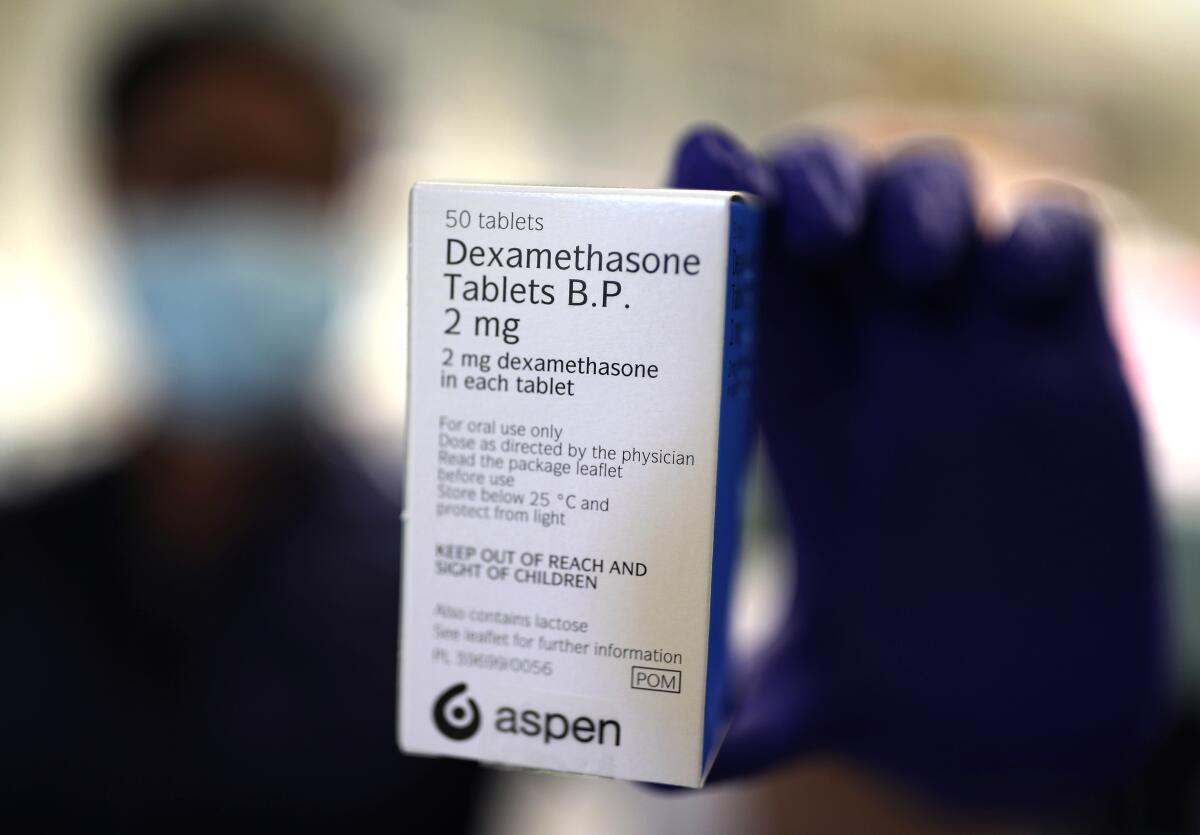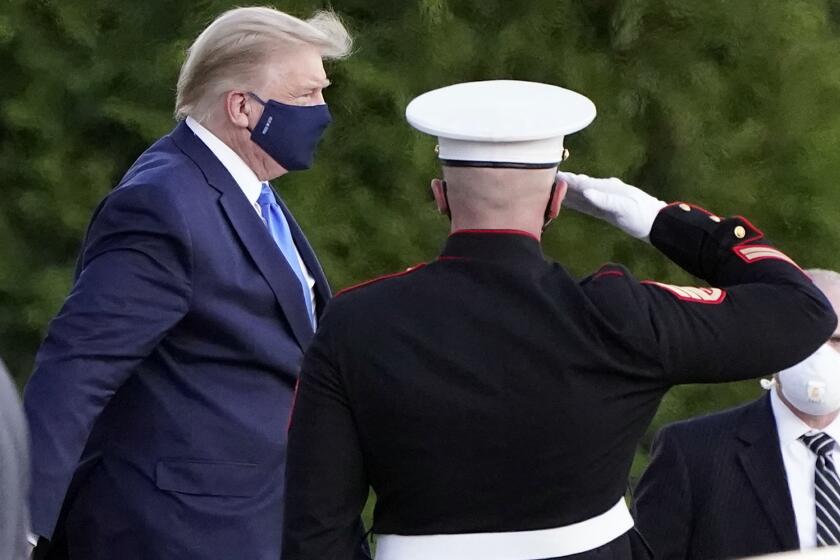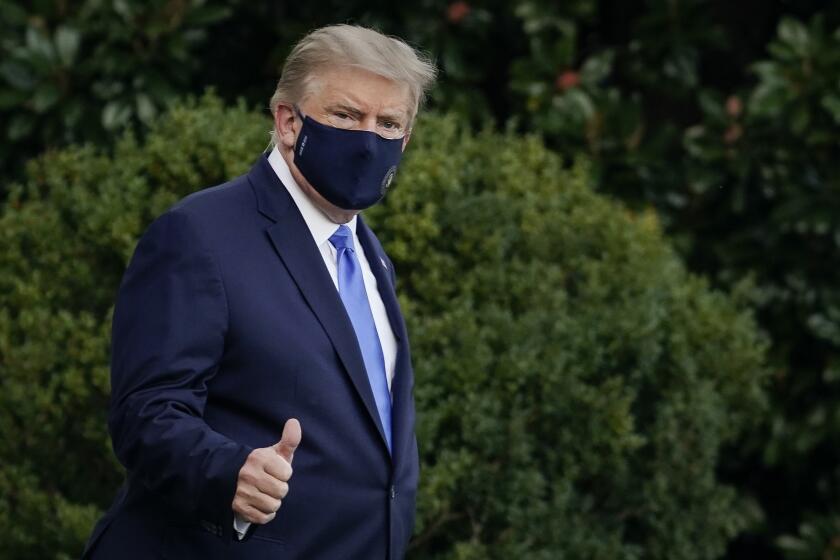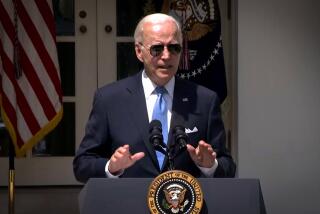Trump received dexamethasone for COVID-19. Here’s what that says about his condition

Overly aggressive treatment of very important patients is a time-honored tradition, doctors say.
But if the decisions of President Trump’s physicians are guided by strong and publicly available research, they suggest his early response to his coronavirus infection prompted serious worry about his prognosis.
Although the use of the anti-viral remdesivir is now standard for a wide range of COVID-19 patients, the steroid dexamethasone is considered safe only when a patient appears to be at high risk of developing the kind of overactive inflammatory response that can lead to organ failure and death.
Trump pronounces himself fit, as his press secretary, Kayleigh McEnany, and other members of his team announce they’ve tested positive for the coronavirus.
The United Kingdom’s Recovery study, which first revealed that dexamethasone could be helpful to COVID-19 patients, found “no evidence of benefit for patients who did not require oxygen.”
It was followed by a U.S. study that identified potential dangers of giving dexamethasone to patients who did not appear to be on the road to severe illness.
For all the medical care President Trump commands, he confronts the same uncertainties that 7.3 million Americans with COVID-19 have faced already.
In patients with very high levels of C-reactive protein, which is produced by the liver in response to inflammation, corticosteroids like dexamethasone reduced the likelihood of mechanical ventilation or death by 75%, according to the U.S. study, which appeared in the Journal of Hospital Medicine.
But in patients whose C-reactive protein levels were not greatly elevated, the steroids appear to have harmed rather than helped. In fact, these COVID-19 patients were three times more likely to die or require mechanical ventilation than were similar patients who didn’t get the steroids, the study reported.
If Trump’s physicians are following the recommendations from the Recovery study and giving him 6 mg of dexamethasone once per day for 10 days, his treatment could stretch to Oct. 14 — one day before the second presidential debate is scheduled to take place in Miami.
In addition to nudging up his blood pressure and his blood sugar levels, that dose for that period of time could affect the president’s mood, his sleep and his memory.
“Corticosteroid-induced psychiatric disturbances are common,” according to a review published in the Mayo Clinic Proceedings. Side effects could include “mania, depression, psychotic or mixed affective states, cognitive deficits, and minor psychiatric disturbances (irritability, insomnia, anxiety, labile mood).”
When President Trump said he had tested positive for the coronavirus, he became ground zero for the most high-profile contact-tracing effort of the pandemic.
In one analysis, researchers calculated that just over one-quarter of patients with no previous psychiatric history developed mild to moderate symptoms while on doses similar to the one the president is likely receiving. One of the studies included in that analysis found that distractibility and intermittent memory impairment were evident in 79% and 71% of patients, respectively.
In addition, a study in the Journal of Neuroscience concluded that deficiencies in declarative memory — the ability to retain and recall known facts and events — may emerge in those on standard treatments with dexamethasone after only four to five days.










